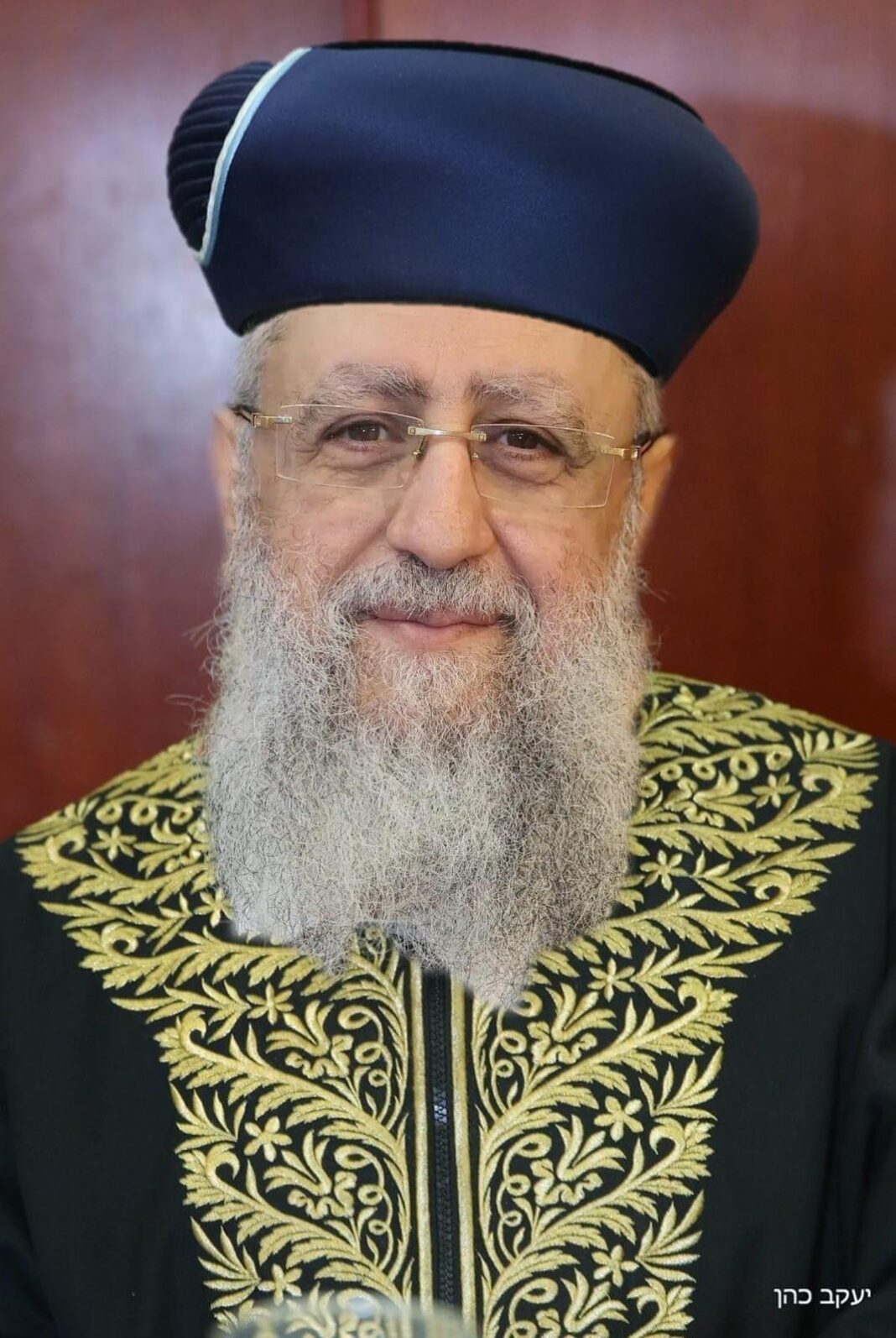|
Getting your Trinity Audio player ready...
|
Chief Rabbinate Elections in Israel: Rabbi David Yosef Elected as Sephardi Chief Rabbi Amid Ashkenazi Election Deadlock
Edited by: TJVNews.com
The elections for the Chief Rabbinate of Israel took place on Sunday evening, with the 140-member electoral committee casting their votes to select new Ashkenazi and Sephardi chief rabbis. These elections, held every ten years, are pivotal in determining the religious leadership that will guide Jewish law and practice for the next decade, as was reported by the Vois Es Nais web site. This year’s elections were marked by a significant victory for the Yosef family in the Sephardi race, but the Ashkenazi contest ended in a dramatic deadlock, leading to a potential legal dispute.
After the election for Chief Rabbi, Rabbi Yosef is met by exuberant supporters
In the Sephardi race for the position of Rishon LeTzion (Sephardi Chief Rabbi), Rabbi David Yosef emerged as the clear winner, continuing the illustrious tradition of his family. According to the information provided in the VIN report, Rabbi Yosef, the brother of the outgoing chief rabbi Yitzchak Yosef and the son of the revered Rabbi Ovadia Yosef, received 72 out of the 140 possible votes, securing a decisive win. His opponents, Rabbi Shmuel Eliyahu and Rabbi Michael Amos, garnered 43 and 21 votes, respectively.
Rabbi David Yosef’s victory was anticipated, given his family’s deep roots in the religious leadership of Israel. His father, Rav Ovadia Yosef, served as Sephardi Chief Rabbi from 1973 to 1983 and was one of the most influential rabbinic authorities in the 20th century. The Yosef family’s prominence in Sephardic Jewry played a crucial role in this election, reinforcing the dynasty’s legacy within the Chief Rabbinate.
Following his election, Rabbi David Yosef made a statement expressing gratitude and outlining his vision for the future. “Thanks to the Holy One, blessed be He, for the great privilege,” Rabbi Yosef said. “With God’s help, I will work night and day to unite the people precisely at this difficult time, and I will work with all my might to make the Chief Rabbinate accessible to all citizens.” His remarks highlighted his commitment to maintaining the Chief Rabbinate’s relevance and influence, particularly in a time of social and political challenges within Israel.
Rabbi Dovid Yosef is pictured here greeting his father, Rabbi Ovadia Yosef, Zt’l
In contrast to the straightforward outcome of the Sephardi election, the Ashkenazi contest ended in a stalemate. Two prominent candidates, The VIN report indicated that Rabbi Kalman Ber (chief rabbi of Netanya) and Rabbi Micha Halevi (chief rabbi of Petah Tikva), each received 40 votes from the committee, while Rabbi Meir Kahane (Av Beit Din of Ashkelon) secured 30 votes, Rabbi Moshe Chaim Lau (brother of the former chief rabbi) received 21, and Rabbi Eliezer Igra finished with just 6.
The tie between Rabbi Ber and Rabbi Halevi has created a situation where another round of voting is likely to be required to determine the Ashkenazi Chief Rabbi. According to the election rules, a second round between the two leading candidates is usually held when no clear winner emerges in the first vote. However, VIN reported that in a surprising twist, Rabbi Halevi’s supporters have raised claims that a vote intended for him was mistakenly placed in the envelope for the Sephardi election. They argue that if this vote were counted, Rabbi Halevi would have 41 votes, giving him a narrow victory over Rabbi Ber.
The matter is now being referred to legal authorities for review, as questions of procedural integrity have come to the forefront, the VIN report said. While it remains uncertain whether the claims will lead to Rabbi Halevi being declared the winner or if another vote will be held, this issue has injected additional drama into what is already a highly watched election.
The Chief Rabbinate of Israel holds immense influence over Jewish religious life in the country, overseeing matters such as marriage, conversion, kosher certification, and the supervision of Jewish religious courts. The institution is unique in that it maintains separate Ashkenazi and Sephardi chief rabbis, who are both tasked with addressing the diverse needs of the Jewish population in Israel. While the Sephardi Chief Rabbi is primarily responsible for Sephardic Jews, and the Ashkenazi for Ashkenazim, both play significant roles in the broader religious leadership of the nation.
Rabbi David Yosef’s victory in the Sephardi race, coupled with the ongoing uncertainty surrounding the Ashkenazi position, highlights the weight and significance of these elections. With the country facing ongoing societal challenges, including debates over religious authority, secularism, and the role of the state in religious life, the newly elected chief rabbis will play a critical role in shaping Israel’s religious and legal landscape over the next decade.
With the elections for the Chief Rabbinate coming at a time of heightened national and international attention, the significance of these leadership choices extends far beyond the religious realm, influencing broader Israeli society and its relationship with global Jewry.





